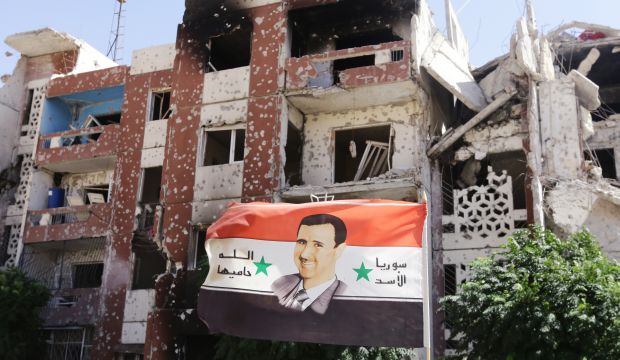The world has finally come to realize that the complete eradication of the Islamic State of Iraq and Syria (ISIS), Al-Nusra Front, Ahrar Al-Sham and all other terrorist organizations in Syria will not be possible without the establishment of a central authority in Damascus that can effectively govern the entire country. This means either supporting Bashar Al-Assad in regaining control over the two-thirds of the country he has lost to the opposition, or helping the opposition reach Damascus and rule the country. The third option is a coalition government without Assad, a step that would represent significant progress in Syria.
British Prime Minister David Cameron’s remarks to MPs during the debate on UK air strikes on Friday are important. Addressing the House of Commons, Cameron said that “it is for a proper, legitimate Syrian government to defeat ISIL [ISIS] in Syria.” It’s very rare for a Western leader to link the war on ISIS with the establishment of a new central authority in Syria. The prime minister’s statement is a clear sign that the time has come for Assad to step down. Cameron pointed out that Iran has a role to play in bringing about better government in Syria.
This solution is similar to the communiqué of the first Geneva conference in June 2012, which called for the formation of a Syrian transitional government formed from regime and opposition officials; it was a proposal that was rejected by most of the opposition forces, and of course, by Assad’s regime too. Iran also refused to accept the communiqué, a condition for attendance at the Geneva II conference.
Two years after this international initiative, it is still the only solution. The communiqué can be implemented and would help achieve the minimum level of expectation of different stakeholders, particularly at a time when ISIS has become an international threat. We should not underestimate the impact of ISIS, especially after its advances led to the removal of Nuri Al-Maliki from his post as prime minister of Iraq. ISIS could also become the main reason to get rid of the stubborn Assad. Eventually, the international demand for a strong, central government to fight ISIS will be achieved.
This more comprehensive approach stems from the acknowledgement that the coalition will fail to get rid of the largest terrorist grouping in modern history if it only relies on Tornadoes and Tomahawk missiles. It will only help get rid of a few thousand fighters, while many other thousands will flee and go into hiding in populated neighborhoods.
How will the alliance be able to triumph over ISIS when its fighters are hiding from radar detectors and splitting off into smaller groups across Syria? Targeting them will become very difficult and may turn the coalition effort into a war of attrition that will continue for years. Meanwhile, terrorism threats will spread across the world.
Most world leaders accept that both the problem and the solution to the Syrian crisis can be found in Damascus. The solution is a legitimate central government that takes on the mission of fighting these terrorist groups—but this will be impossible without toppling Assad first.
In turn, the transition will not work without the consent of Assad’s allies, Iran and Russia. However, his two allies are afraid that Assad has become an easier target due to increasing Western support for the opposition. The best option for Iran and Russia is to take part in the establishment of an inclusive Syrian government, instead of entirely losing the Syrian game. The proposal of cooperation with Tehran may not last long. Western governments have already started arming the opposition, supporting them with information, training thousands of recruits, and will eventually hand them the responsibility for the areas from which ISIS is flushed out.

The only chance ISIS is eliminated for good is if the USA cooperates with the Syrian government that will provide trained boots on the ground. In addition the continued presence of Bashar al Assad is indispensable to ensure the cohesion of the Syrian army in its fight against ISIS Attempting to remove him from power is the recipe for failure. The USA has finally understood that.
It is therefore eliminating Al Nusra and all the Islamists groups that have helped the Free Syrian army to occupy some areas. One by one these areas will be back under the control of the Syrian Army. In a few months the rebels will be controlling no areas at all and the FSA will dissapear..
Bu doing so it seems that the USA has made a secret bargain with the Syrian government; It will eliminate all rebels affiiated with Islamist groups in exchange for a power sharing with some local members of the opposition under the auspices of Iran, Russia and the UN.